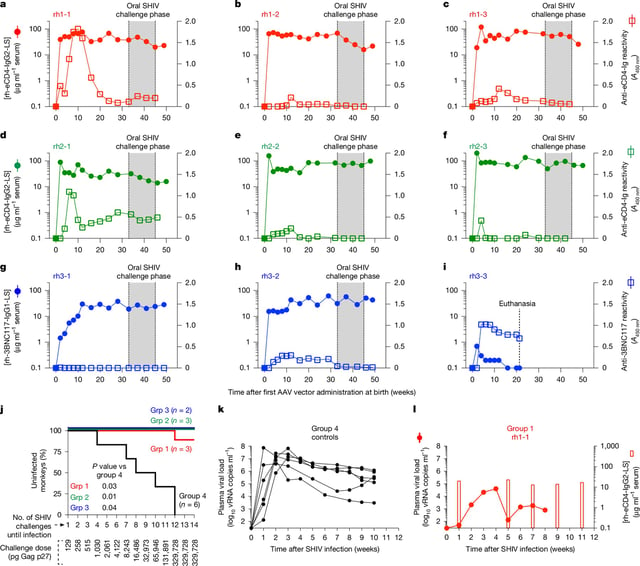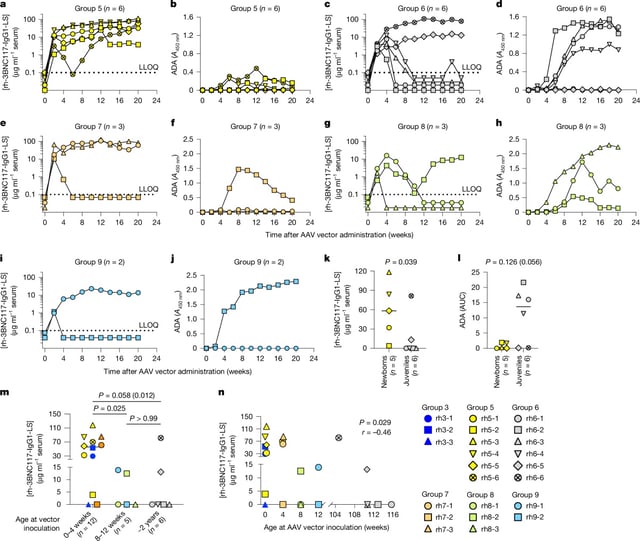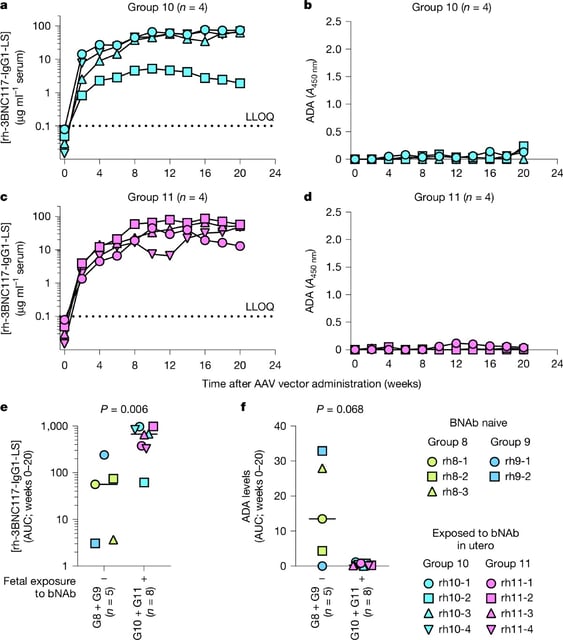Overview
- Newborn primates receiving a single AAV-based gene therapy at birth sustained broadly neutralizing HIV antibody expression and protection for three to four years without booster shots.
- The neonatal immune window was key to tolerance, with treatments after eight weeks provoking rejection unless fetuses had prior antibody exposure in utero.
- Researchers used an adeno-associated virus vector to deliver genes to muscle cells, effectively turning them into long-term factories for HIV-neutralizing antibodies.
- A one-time injection at birth could dramatically reduce mother-to-child HIV transmission in regions with limited healthcare access by providing durable protection during breastfeeding.
- Next steps focus on initiating human feasibility trials and overcoming hurdles of HIV strain diversity, interspecies immune differences, and the high cost of AAV therapies.



